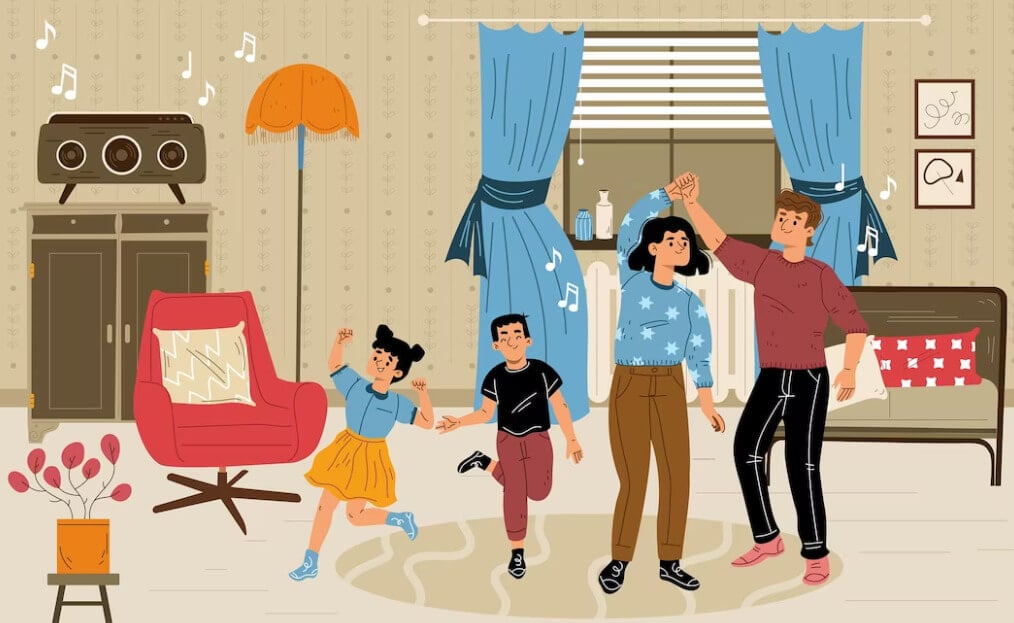Updated February 21, 2023
Nuclear Family
In society, a family made up of a married couple and their kids, who may be biological kids or kids via adoption, is known as a “nuclear family.” A nuclear family is also known as an “elementary family.” The term “nuclear family” is relatively new, first coined only in the 20th century. As you know that every concept has advantages and disadvantages. Similarly, this article addresses the advantages and disadvantages of the nuclear family.
Advantages of Nuclear Family
Let’s first discuss some advantages of being in a nuclear family.
#1 Steadiness and Reliability
Children born within the marriage are more stable than children born of cohabitation. A committed spouse or partner in a good relationship is an example of a loving, caring, and supportive relationship for their kids. As a result, kids learn to build healthy connections and interact with others efficiently, which leads to future success. Children witness couples collaborating to solve problems, assign responsibilities, and encourage one another through good and unpleasant obstacles.
#2 Health Benefits
According to studies, youngsters from households with married biological parents have higher social, emotional, and physical health than other children. Children raised in nuclear households are less likely to witness maltreatment than children raised in single-parent homes. Nuclear families are also more likely to utilize emergency rooms and even be prepared to provide their kids with sufficient medical care.
#3 Peace and Harmony
Peace and harmony are vital for a happy family life. There is no misunderstanding in nuclear families; you can enjoy a comfortable environment by living together.
#4 Development of Personality
A nuclear family plays an essential role in developing an individual’s personality. Children become closer to their parents and can discuss their problems more freely and openly with them, which contributes to better character development.
#5 Connection to Family During the Aging Process
People who grow up in stable nuclear homes are more inclined to keep family ties intact and retain them into old age. As you grow older, you receive more family support in a nuclear family than in children with one parent and no siblings. It can give people in nuclear families an advantage regarding financial and emotional support when a parent and/or sibling becomes ill and eventually dies.
Disadvantages of Nuclear Family
As we discussed earlier, there are two sides to every story. In the same fashion, in this article on the advantages and disadvantages of the nuclear family, the downsides of being in a nuclear family will be examined.
#1 Limited Support System
Emergencies, such as accidents or sickness, can jeopardize tiny nuclear families. According to the Preserve articles research, Joint family setups include embedded aid for these occurrences. When both parents work and have small children, it is only sometimes possible to satisfy all expectations and demands entirely within the family unit. As required, multigenerational homes provide support. If a youngster becomes unwell at school while his or her parents are at a meeting, grandmother or grandpa may frequently be there in a flash.
#2 Self-Centeric Personality Development
A conventional nuclear family is focused on the child. This means that the immediate family, particularly children, is prioritized in all aspects of life. The family unit prioritizes its own needs while putting others second. This way of view might lead to selfish habits and thinking in children and lead to a limited perspective that ignores society’s overall well-being.
#3 Insecurity of Children
In a nuclear family, husbands and wives work outside the home, and children are neglected and cared for by servants. They are lonely and emotionally unstable, and they become more and more anxious. When the head of the household dies or becomes disabled, there is no one to support the family. Even when any unforeseen crisis surfaces, such as illness, accident, and pregnancy, the family is ignored, and there is no one to take care of them.
#4 Issues with the Balance Between Fun and Serious Activities
It is an issue that couples consider most when focusing on personal and professional development. Working couples often have difficulties, such as a child falling over from exhaustion or announcing the caregiver’s workday at school or kindergarten. In volatile relationships mother usually tries to adapt. In such cases, help from more distant family members may be absent.
#5 Trouble in Settling Clashes
Although a nuclear family is a tightly knit group, it is not without disagreements. Conflicts may remain unresolved if seniors and individual guardians do not intervene and direct, and it might jeopardize family ties and the stability of the home.
Final Thoughts
Many people choose to have a nuclear family. It may give a person security and predictability and works effectively for many families. As stated above, the advantages and disadvantages of the nuclear family have had a considerable social influence despite its drawbacks. It is one of the most frequent structures in contemporary western culture. This arrangement enables parents to assist and care for their children while they are still young. It also gives parents authority over their children’s education, health care, and socializing.

